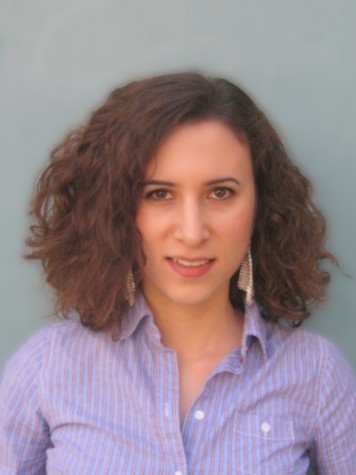In his lecture, “Three Questions About Climate Change,” GCC Professor Poorna Pal tackled one of the hottest topics of the century – is the planet undergoing global warming, and if so, who is to be blamed and what can be done?
The lecture took place at noon on March 27, as part of the GCC Science Lecture Series.
After giving a comprehensive overview of the latest research and drawing on data from such authoritative sources as the NASA and the U.S. Environmental Protection Agency, Pal presented the findings of the scientific community showing that there is, indeed, a rise in the temperature of the planet.
“Yes, global warming is taking place, no questions about that,” the professor said.
Standing in front of a mixed audience of students, faculty, and elderly people, Pal engaged everyone in a fast-paced debate. He addressed the present and future state of the planet by sprinkling humor over highly alarming data.
“Is global warming really bad? Well, why should we only think of penguins and polar bears?” Pal said, “… you can grow apples in Alaska! They’ve already started doing that … You can grow bananas in Kansas! Global warming is not bad.”
“How many of you guys would like Glendale college on a beach?” Pal asked, bringing the issue of worldwide rise in sea levels closer to home.
But then there were cases, when the outlook on climate change took a turn for the serious.
“You have just another 25 years to go and visit Maldives – beautiful islands” said the professor, “Why only 25 years? Then Maldives will be under water.”
The central question of the lecture was not whether or not climate change is a reality. The key issue was whether global warming is due to human activity or natural processes.
After going over research establishing the link between increased carbon dioxide levels in the atmosphere and the rise in global temperatures, Pal said that scientists would be only happy to find a reason other than “human industrial activity” to explain the “shoot up in carbon dioxide.”
However, to this day, no other explanation has been found, he said.
According to Pal, while there is not much to be done if global warming happens to be due to natural processes, the implications of human activity being responsible for climate change are of a far more serious nature, calling for action on our part.
Yet, taking action may be impossible given certain economic and political realities.
“Economic prosperity and energy consumption are closely correlated and so are economic prosperity and carbon emissions,” said one of his lecture slides.
Showing the close correlation between economic growth and carbon-based energy use, the professor warned against the environmental impact of the economic rise of BRIC countries – Brazil, Russia, India and China – referring to them as “the most significant sources of future carbon emissions.”
At the same time, he underlined the impossibility of stopping the growth of these countries, considering their vital role in the global economy.
Pal discussed the use of nuclear energy, as a more realistic alternative to trying to stop the growth of BRIC countries, but this option, too, was problematic.
“The problem is that energy pollutes, whatever source we look at. That’s why … nuclear energy would have been a good alternative,” said Pal, “but you see, after that Japanese tsunami and that disaster at the nuclear plant, everybody’s worried about it, everybody’s afraid of it.”
Unlike the rest of the lecture, the ending of the talk was far from cheerful.
“I keep trying to see if we can find some reason for excessive carbon dioxide in the atmosphere, Pal said.
“… Otherwise it is a reality and I don’t see how we are going to change it in the foreseeable future without seeking to stop the growth of India, to stop the growth of China … and that means that the alternative is to sit down and cry. Sorry I wish I had better news for you,” concluded the professor with a bitter smile on his face.

